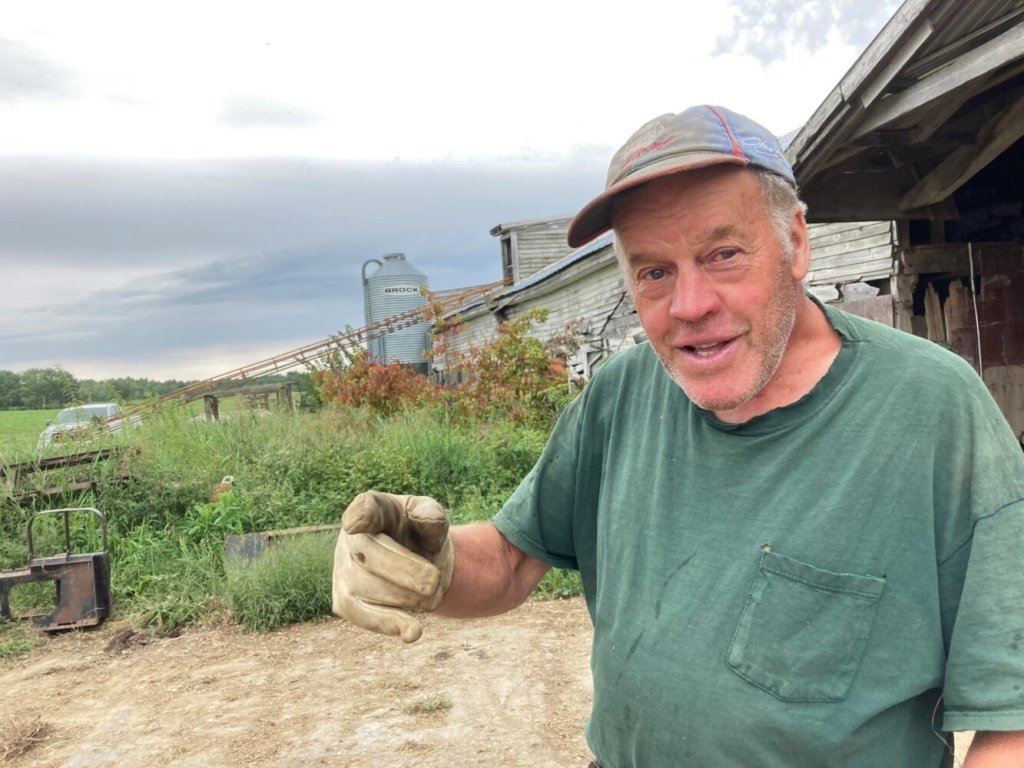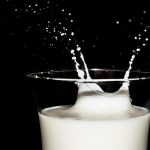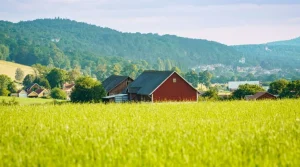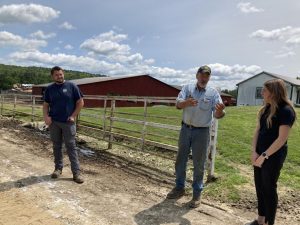
After more than two decades of selling his milk to essentially one company, Joseph Roseberry, who operates his organic dairy farm on the Beedle Road, finds himself at an uncomfortable junction.
Last week, Roseberry and 13 other organic dairy farmers across Maine who have sold their milk to Danone subsidiary Horizon Organic received notice that the company won’t renew contracts for their milk when the current ones expire around this time next year.
“You can’t plan too far ahead with just one year,” Roseberry, 76, said Saturday. “Everything you do in farming, you’re looking long term. It’s not a quick-shot deal.”
While other companies, like Organic Valley and Stonyfield, purchase milk from various organic dairy producers in Maine, Roseberry said he doesn’t know if those buyers have a need for an additional supply of milk. If they don’t, it’s not immediately clear what other options he has.
In a joint statement issued last week, Maine Gov. Janet Mills and Amanda Beal, commissioner of the Department of Agriculture, Conservation and Forestry, pledged their support in helping these farms specifically, as well as the state’s overall dairy industry. Efforts are underway to form a working group of industry stakeholders and representatives of the state. The group will consider both short- and long-term strategies.
Beal, who grew up on a dairy farm in Litchfield, was the president and chief executive officer of Maine Farmland Trust before being named DACF commissioner.
“Every single dairy farm is vitally important to our state and our agricultural economy,” she said. “To see this level of impact (on) so many farms is very concerning.”
She pointed out that dairy farms help support many other businesses, from livestock veterinarian practices to tractor sales and maintenance facilities, and from feed stores to trucking businesses.
In Maine, organic milk makes up about 7% of the total milk produced, but organic dairy farms represent nearly a third of all dairy farms.
Julie-Marie Bickford, executive director of the Maine Dairy Industry Association, said the state’s dairy industry, primarily family-owned and operated, is diverse.
Farm size can range from two or three cows to 1,600. Some farms make products like cheese and yogurt that they sell directly to customers or wholesale through local stores. Larger commercial farms typically send all the milk they produce to processing plants.
Conventional milk is shipped at the farmers’ expense to processors in Maine, but the state has no organic processing, so organic milk is shipped elsewhere on the buyers’ dime. In the case of the Horizon Organic contracts, milk has been shipped to a plant in Buffalo, New York, and more recently to a plant in Virginia.
Bickford said northern New England and Pacific Northwest farmers were among the early adopters of organic practices. But as organic dairy products have become more mainstream, farmers who operate closer to organic processing plants have been making the switch from conventional dairy, giving plant operators like Horizon Organic more cost-effective sources for organic milk in states like Pennsylvania and Ohio.
“It was just going to be a matter of time,” she said.
The focus is now on the 14 farms with expiring Horizon Organic contracts, and whether they will have to restructure or reorganize, she said. But decisions like these are on the minds of every Maine dairy farmer, according to Bickford, because geography can affect them too. Consolidation across the U.S. dairy industry has reduced options for smaller dairy farmers, giving them fewer places to send their milk.
Whether these organic dairy farms — and the farms in Vermont and New York that received the same Horizon notification last week — can continue is an open question. Bickford said that some may go out of business, and others may shift to raising replacement dairy cows or raising beef cows instead.
Roseberry said there’s no next generation in his family to take over the farm, and he currently knows of no one who is both qualified and interested in becoming his successor. He and his wife are considering protecting the property with an agricultural easement to keep it as a farm. The property has been used for farming since about the 1880s.
Beal knows there are challenges ahead, but she also identifies factors that may help Maine farmers. “One of the positive trends we’ve seen in the last couple of decades is consumers being more interested in sourcing agricultural products locally,” she said.
Bickford said that a focus on locally-sourced products becomes ever more critical considering changes to the climate that threaten food production in other parts of the country.
“We keep reminding ourselves we have the potential to be the breadbasket of the northeast,” Bickford said. We just need the tools to make it happen.”























